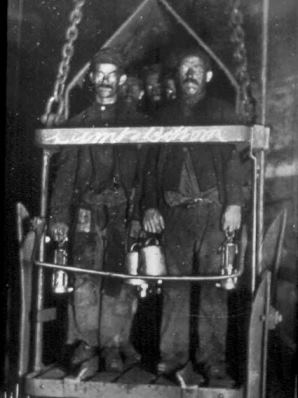 Key Stage 2 workshop
Key Stage 2 workshop
Introduction
Coal mining was the foundation of the life and industry in the local area for many years. In the 1840’s there were over 1000 pit shafts within a 5 mile radius of Wigan town centre. Coal was taken via the Leeds and Liverpool canal and later by rail to power factories and to heat homes in the region and also nationally. Coal from Wigan helped to power the industrial revolution.
Lives for local families revolved around the mining industry, with men and boys from the same family working underground while girls and women worked on the surface. They worked long hours, confronting danger and health problems on a daily basis.
Coal was essential to the industrial development of Britain. Engines that drove prosperous industries depended on coal. Developments in transport created a further demand for coal, while all homes for both rich and poor depended on coal for heating and cooking. This essential commodity was found in abundance in the coalfields of Lancashire.
Pre-visit activities
Discuss: What was coal used for in the year 1900? What was it used for in the home and in industry? Think about why we don’t need coal today, what are the present day alternative sources of power?
Find out: Find out how and when coal was formed.
Your workshop
This workshop looks at coal mining in the local area around the year 1900. The session starts when we dress up one of the children as a new starter in the mine. How old would a child be when they started work? How would he feel? By discussion and handling our collection of Victorian mining tools we examine the different jobs that were needed to bring coal to the surface.
Children will also take part in activities to investigate the dangers of coal mining, studying reports on pit disasters.
Follow up activities
Discuss: How did the introduction of electric power change the life of a miner in 1900 both at work and at home?
Find out: What types of power were produced from coal? How did these different types of power use coal?
Information
- This workshop will be delivered at the Museum of Wigan Life
- The session will last for 1 hour to 1 hour 15 minutes
- To book or for any further information please contact us.
To further support teaching, the Schools Cultural Service also provide book and museum loans.
For further information contact us.